What is a Solar Water Pump for Livestock and How Does it Work
As the agricultural sector increasingly embraces sustainable practices, the integration of technology in livestock management has gained significant traction. A noteworthy innovation is the Solar Water Pump for Livestock, which not only provides an efficient water supply but also reduces dependency on traditional power sources.
According to a report by the Food and Agriculture Organization (FAO), livestock farming accounts for nearly 30% of global freshwater consumption, emphasizing the need for innovative solutions to resource management. The use of solar water pumps can lead to substantial savings on energy costs and enhance water accessibility in remote areas, benefiting both producers and animals.
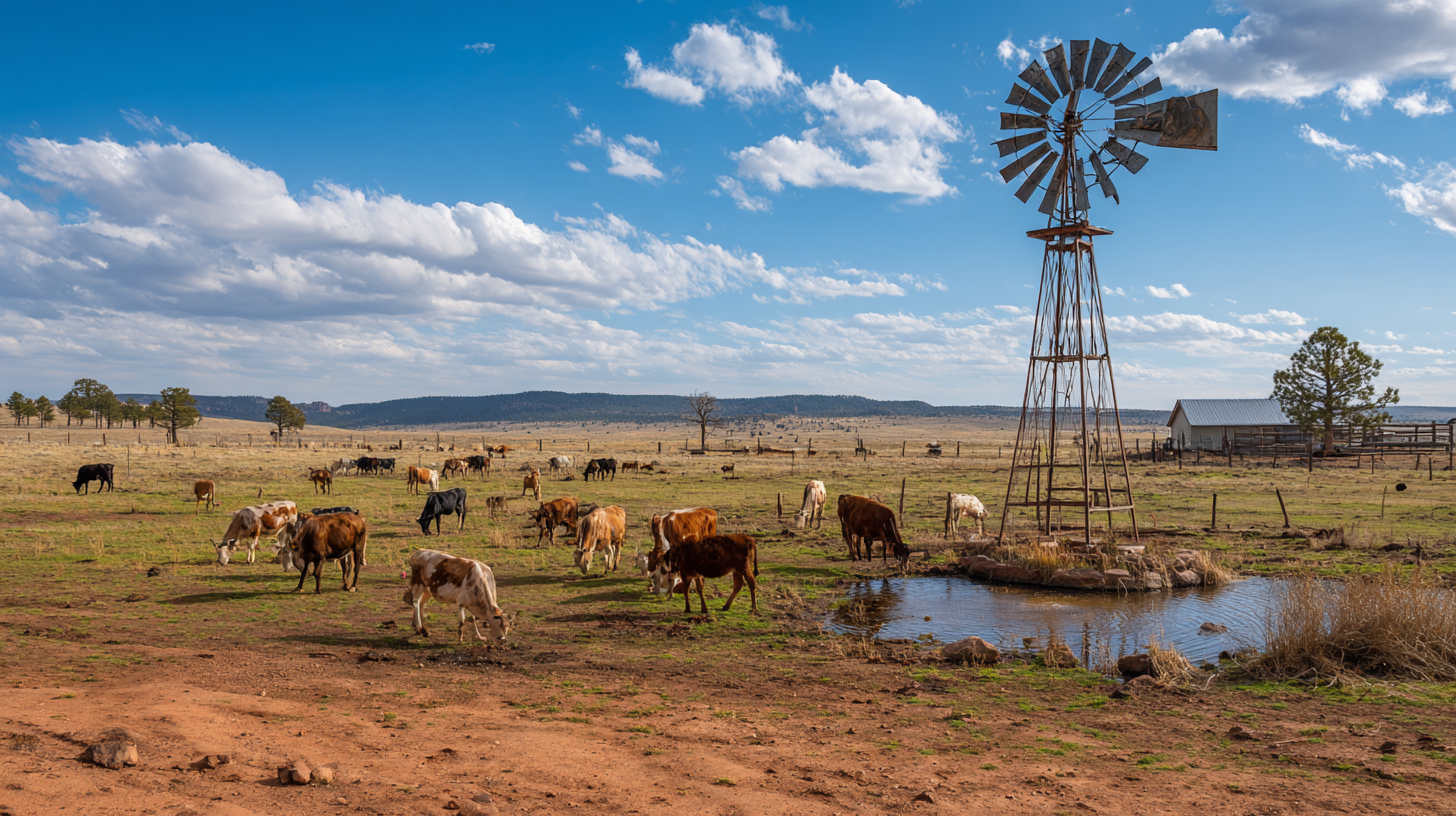
With the solar market projected to exceed $223 billion by 2026, investing in solar water pumps is becoming an increasingly viable option for livestock farmers looking to optimize their operations while contributing to environmental sustainability.
Understanding Solar Water Pumps: Key Components for Livestock Use
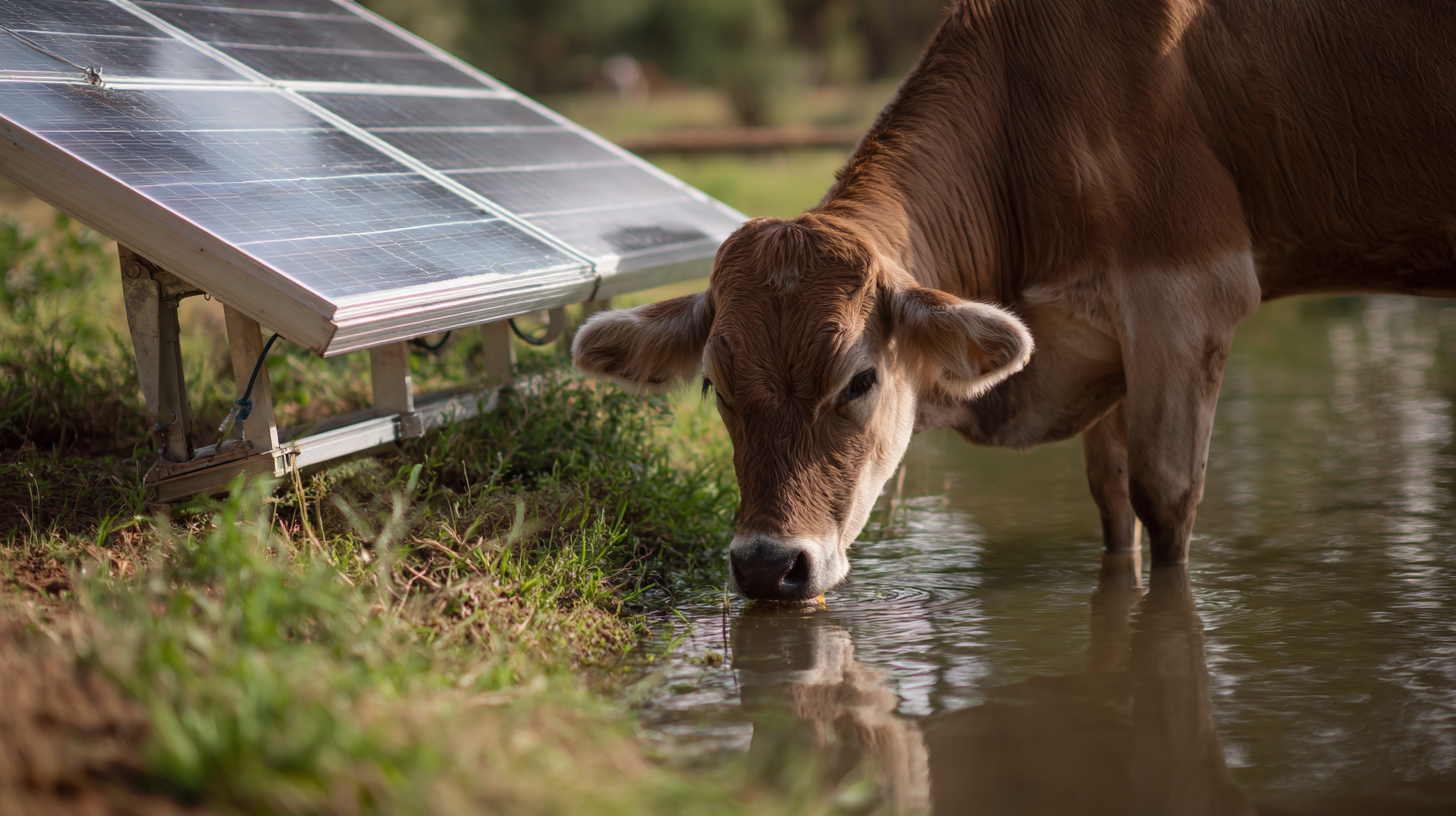 A solar water pump for livestock is an innovative solution designed to provide a sustainable and reliable source of water for animals in remote areas. Understanding the key components of these systems is essential for maximizing their efficiency and effectiveness. At the core of a solar water pump system is a solar panel that captures sunlight and converts it into electricity. This energy powers the pump, which draws water from a well, pond, or other water sources and delivers it to troughs or watering points for livestock.
A solar water pump for livestock is an innovative solution designed to provide a sustainable and reliable source of water for animals in remote areas. Understanding the key components of these systems is essential for maximizing their efficiency and effectiveness. At the core of a solar water pump system is a solar panel that captures sunlight and converts it into electricity. This energy powers the pump, which draws water from a well, pond, or other water sources and delivers it to troughs or watering points for livestock.
Another critical component is the pump itself, which can vary in design depending on the required flow rate and the depth from which water needs to be extracted. Submersible pumps are often used for deeper sources, while surface pumps are more suited for shallower applications. Additionally, a controller is implemented to manage the power flow and optimize the pumping operation, ensuring that the livestock have a steady supply of water while conserving energy during peak sunlight hours.
By understanding these components, farmers can better utilize solar water pumps to enhance their livestock management practices sustainably.
The Science Behind Solar Water Pumps: How They Harness Solar Energy
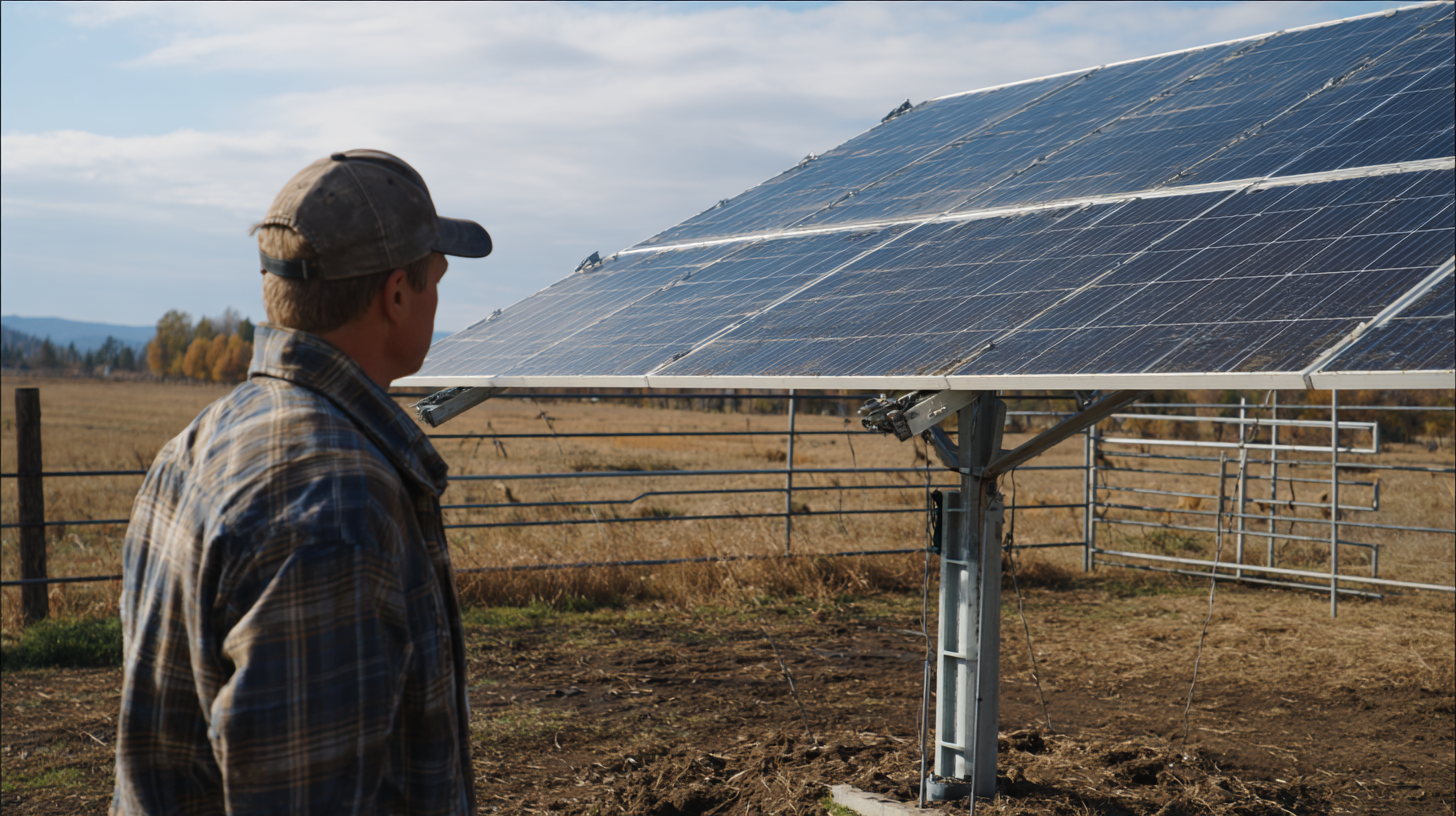 Solar water pumps for livestock are innovative systems that utilize solar energy to provide water for animals. The science behind these pumps is quite fascinating. Solar panels convert sunlight into electricity, which powers the pump and moves water from a source to where it is needed. This technology not only reduces dependence on fossil fuels but also ensures a sustainable water supply in remote areas.
Solar water pumps for livestock are innovative systems that utilize solar energy to provide water for animals. The science behind these pumps is quite fascinating. Solar panels convert sunlight into electricity, which powers the pump and moves water from a source to where it is needed. This technology not only reduces dependence on fossil fuels but also ensures a sustainable water supply in remote areas.
One important tip when setting up a solar water pump system is to choose the right size pump based on your livestock's water needs and the distance of the water source. Ensure that the solar panels are positioned correctly to maximize sunlight exposure throughout the day. Additionally, regular maintenance of the solar panels and the pump mechanism will keep the system running efficiently.
Another consideration is the battery storage system, which can store excess solar energy. This is particularly useful for ensuring a continuous water supply during cloudy days or at night. Investing in a reliable battery system can significantly enhance the performance of your solar water pump, providing peace of mind for livestock owners.
Installation Guide: Setting Up a Solar Water Pump for Your Livestock
Setting up a solar water pump for your livestock can significantly enhance their access to clean water while reducing operational costs. According to the U.S. Department of Agriculture, approximately 70% of farmers rely on water pumps for livestock needs, and solar-powered systems have gained attention for their efficiency and sustainability. The installation process begins with selecting the right solar water pump system based on your livestock's water consumption and the geographical location of your farm.
To install the system, first, assess the daily water requirements of your animals. Typically, a goat requires around 1-3 gallons of water per day, while a cow may need up to 12 gallons. Next, position the solar panels in an unobstructed area to maximize sunlight exposure. After mounting the panels, connect the pump and set up a water storage tank to ensure a steady water supply. A report by the International Renewable Energy Agency highlights that properly configured solar water pumping systems can reduce energy costs by up to 60%, making them an economically sound choice for livestock farmers. Following these guidelines will help you create an efficient solar water supply system that meets the needs of your herd effectively.
Maintenance Tips: Ensuring Longevity of Your Solar Water Pump System
When it comes to ensuring the longevity of your solar water pump system for livestock, regular maintenance is key. One of the fundamental maintenance tips is to keep the solar panels clean. Dust, dirt, and debris can accumulate on the surface, diminishing their efficiency over time. Make it a routine to inspect and clean the panels to maximize sunlight absorption and optimize the system’s performance.
Another critical aspect is to check the pump for any signs of wear and tear. Regularly inspect the physical condition of the pump, hoses, and fittings for leaks or damages. If you notice any irregularities, addressing them promptly can prevent more significant issues down the line and extend the lifespan of your system. Additionally, consider scheduling annual professional maintenance checks to ensure all components function efficiently and securely.
Lastly, monitoring water quality is essential for the health of livestock and the effectiveness of your system. Regular tests for contaminants and proper filtration can help ensure that your water remains safe for your animals. Implementing these simple yet effective maintenance tips will go a long way in enhancing the reliability and durability of your solar water pump system for years to come.
Benefits of Using Solar Water Pumps for Sustainable Livestock Management
Solar water pumps have emerged as a vital solution for sustainable livestock management, offering numerous benefits that enhance both efficiency and environmental responsibility. One of the primary advantages is their ability to provide a consistent and reliable water supply without relying on traditional power sources. This not only reduces operational costs for farmers but also decreases their carbon footprint, making solar pumps an eco-friendly choice that aligns with modern agricultural practices.
Furthermore, solar water pumps contribute to improved livestock health and productivity. With continuous access to clean water, animals are less likely to suffer from dehydration and related health issues. This leads to better growth rates and increased milk or meat production, significantly benefiting farmers’ bottom lines. Additionally, these pumps can be easily installed in remote areas, facilitating water access in locations that might otherwise struggle with supply. Overall, the integration of solar water pumps in livestock management represents a forward-thinking approach that supports both agricultural productivity and sustainable practices.
| Aspect | Details |
|---|---|
| Definition | A solar water pump uses solar energy to pump water, aiding livestock management. |
| Components | Solar panels, pump, controller, and water storage tank. |
| Operation | Solar panels convert sunlight into electricity, which powers the pump to move water. |
| Benefits | Cost-effective, environmentally friendly, and reduces reliance on diesel or grid electricity. |
| Sustainability | Promotes sustainable agriculture by utilizing renewable energy sources. |
| Installation Locations | Remote areas with abundant sunlight and limited access to conventional water sources. |
| Usage | Ideal for farms, ranches, and rural homesteads where livestock require a consistent water supply. |
Related Posts
-

Top 10 Solar Panel Water Pump Manufacturers from China at the 137th Canton Fair
-

Exploring Real Life Applications of Best Solar Pumps in Agriculture and Industry
-

5 Best Solar Systems that Will Power Your Home Efficiently
-
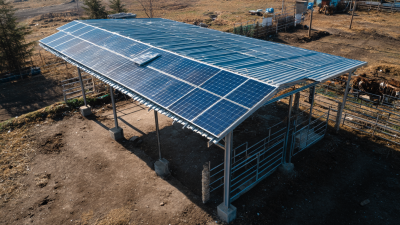
Elevate Your Business with Superior Water Solar Systems from China's Leading Manufacturer
-

5 Innovative Reasons Why Solar Submersible Pumps Are Revolutionizing Water Management in 2023
-
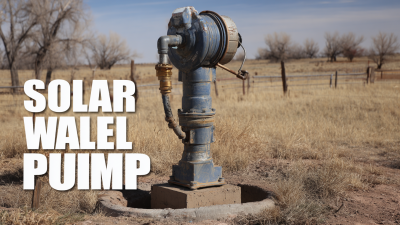
The Ultimate Guide to Choosing the Best Solar Well Pump for Efficient Water Management
Contact Details
Address:
Solar Pump Solutions,
Borrisokane, Co. Tipperary, Ireland.
